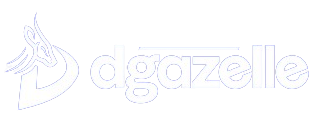So you want to begin creating your website? That would require you acquiring and choosing a domain name. No matter how good your site is, visitors will be turned off if the URL is not captivating enough.
A great domain name will not only serve as your online brand, but it will also improve your site’s overall SEO and increase your visibility in web search results.
In this article, we discuss 7 tips you should consider before choosing a domain name.
What is a Domain Name?
A difference in online vs offline business models is the presence of a website. All websites have their domain names. A domain name is the web address of a website or internet page. It’s what you type into your browser to visit the page.

Choosing a domain name for your company can be difficult. The main reason for this is that you want to ensure that the name you choose is both available and easy to remember and type.
Your domain name will be used by both you and your customers. and that it is critical for SEO purposes. Domains are classified into two types:
- Generic domains are not specific or unique in any way.
- Branded domains — When someone clicks on this type of domain, they know exactly what they’re going to get.
How to register a domain name
You can register a domain name through one of many registrars, each of which provides varying levels of service based on your needs and budget. You can begin with a big company, such as GoDaddy or Namecheap. These websites will provide you with access to millions of available names, but they will charge you a fee for the convenience.
A domain name can be purchased directly from a registrar or through a reseller — someone who sells domain names on behalf of other businesses.
When you register a domain name, you must provide some basic information about yourself as well as payment information. Some registrars also require proof of ownership before allowing you to register a domain name, so make sure you have this information ready ahead of time.
Once you’ve registered with one of these companies, they’ll give you all the information you need, including login credentials and control panel access, so you can manage your own DNS entries (the data that identifies each specific domain).
7 Tips for choosing a domain name
Choosing a wrong or clumsy domain name is a reason most online businesses fail. Here are 7 tips that will help you wen choosing a domain name.
1. Check name availability before choosing a domain
You need to check for availability before choosing a domain name. While there are many available domains, it is possible that someone else will register a similar one before you. If this occurs, it may be difficult (if not impossible) to regain control of the domain once it has been registered by someone else. Before making a decision, check www.whois.net or www.domaintools.com to see if any similar names are available.
2. Keep your domain name short and memorable
When choosing a domain name, keep it short and simple.
Your domain name should ideally be no more than two words long; anything longer may be difficult for visitors to remember when typing it into their browser bar or smartphone screen! Use hyphens sparingly in your domain name; they can confuse visitors who don’t know how to correctly type them into their device (plus, they’re not allowed in many social network URLs).

3. Consider your top-level domain
Another to note when choosing a domain name is knowing what is a top-level domain.
A top-level domain, such as.com,.org, or.net, is the final part of a website’s address. In technical terms, it is known as the TLD.
The most popular generic TLDs are.com and.net, but there are also country-specific TLDs such as.de (Germany),.se (Sweden), and.co.uk (United Kingdom). Some TLDs, such as.museum and.gov, are not used for websites at all.
Consider why someone would visit your site in the first place—is it informative, entertaining, or something entirely different? Consider what happens when someone visits your website versus what happens when they visit another website when answering this question.
4. Use keywords in your domain name
The first part of your domain name should contain a keyword that describes your company and/or the product or service you offer. A domain name should be between five and seven characters long, with each character being a letter or number (including hyphens). This makes it easier for people to remember, which increases the likelihood that they will visit your website.

If you have a choice of available domains when registering, pick the one that best describes what you do.
If you’re creating a website for a digital marketing business, for example, use city names in the domain name (e.g., newyorkcitydigital2020.com). This will help people find your site when they search online using these terms.
5. Don’t use special characters
Do not use special characters like %, & when choosing a domain name. These are known as “encoding,” and they can cause issues if you later want to transfer your domain or add additional sites to your hosting account. Also, because special characters no longer appear on most keyboards (unless you have an international keyboard enabled), they make it difficult for people to type in their browser or text message application.

6. Avoid all capital letters when choosing your domain name
In your domain name, avoid using all capital letters or numbers. This is one of the most common mistakes made by new webmasters who want their site to stand out from the crowd. Unfortunately, this tactic only makes it harder for people to read and remember your website address.
Choose an easy-to-pronounce, easy-to-spell domain name with no typos or unnecessary words.
7. Add domain ID Protection
Most domain registrars offer Domain ID Protection, which prevents fraudulent transfers of your domain to another registrar. If you have Domain ID Protection enabled, your domain will be automatically cancelled when you transfer it away from the current registrar. This means that the new registrar will be unable to transfer the domain until the cancellation is removed.

Domain WHOIS Protection
Domain WHOIS Protection is a service provided by some registrars (but not all) that conceals your personal information in WHOIS records from public view. This safeguards your privacy and makes it more difficult for spammers and other malicious individuals to target you with spam or phishing attacks.
Conclusion
Choosing a domain name is one of the most crucial steps in the development of your website. The right domain name can help you stand out from the crowd, increase traffic, and build your brand.
A memorable domain name is one that is easy to spell and pronounce. It should also be pertinent to your company or project.







